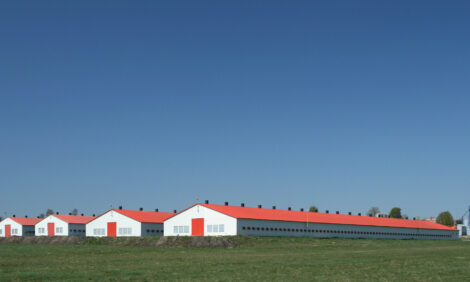



Watchdog Ready to Pounce on Local Chicken Cartels
SOUTH AFRICA - While the local poultry industry is urging the authorities to protect it against the alleged dumping of Brazilian chicken, the competition watchdog is wrapping up investigations into anticompetitive conduct by some of its members.The International Trade Administration Commission (Itac) said on Monday it had asked for additional provisional duty payments from Brazilian poultry producers to protect the local industry — although its findings into claims of dumping had not been finalised.
BusinessDay reports that the Competition Commission yesterday confirmed it was in the final stages of investigating complaints on allocation of markets, bids to stabilise prices, and information sharing in the local industry — and had found contraventions.
The commission’s head of enforcement and exemptions, Keith Weeks, said yesterday "adverse findings" were likely against some of the companies investigated. Negotiations for possible settlements had already started.
Mr Weeks said there had been import competition in the poultry industry, but there were concerns about a lack of local competition.
The commission prioritised food and agro-processing in 2006 due to the prevalence of cartels in the sector and the effect on consumers, especially the poor.
In April 2009, it initiated investigations into complaints about anticompetitive conduct in the market for poultry products, poultry feed and poultry breeding stock and broiler production.
The investigations probed the South African Poultry Association — which brought the complaint against Brazilian producers — the Animal Feed Manufacturers Association, Rainbow Chicken , Astral Foods, Pioneer, Country Bird Holdings and Afgri . The commission has already reached a settlement agreement with Pioneer Foods.
"It seems as if the mind-set of aversion to competition is deeply entrenched in the agricultural sector," Mr Weeks said.
The Poultry Association’s complaint about Brazilian exporters is another indication of the industry’s aversion to competition.
Itac found in its preliminary probe that increased imports of chicken products from Brazil had led to material injury to producers in the Southern African Customs Union.
Zoleka Xabendlini, Itac senior manager of trade remedies, said the decision on material injury was based on a "holistic analysis" of all injury indicators. This entailed an evaluation of price undercutting, price depression, price suppression, sales volumes, sales values, output, inventory, profit, ability to raise capital, market share and productivity.
The commission found that for whole chicken there was "positive material injury" with regard to Brazilian price undercutting, market share and growth.
Return on net assets, cash flows and capital expenditure had to be considered with circumspection as they related to total production of a company and were not product-specific, Ms Xabendlini explained.
Itac found that many of the indicators were in positive territory.
The Competition Commission investigated allegations that members of the local poultry industry had agreed to divide the market by allocating territory and customers.
"As a result of the collusion, the respondents charged significantly higher prices than the independent or small manufacturers, even though their cost bases are similar. Their prices were in some instances 25 per cent higher than those of the smaller poultry feed producers," the commission said in a statement in November 2010.
In Itac’s injury investigation it considered and evaluated data from January 1 2008 until December 31 2010 from three manufacturers in the regional customs union.
From 2008 to 2010, sales value for local manufacturers increased from 100 base points to 104. Even though there had been negative growth in profit during 2008 and 2009, profitability returned in 2010. Output increased during the period of investigation, but market share decreased by 40 percentage points.
According to production and employment figures from local producers, Itac found both had risen.
The consolidated net profit on all chicken products increased from 100 base points in 2008 to 915 points in 2010, and incoming cash flow for the industry increased.
In its preliminary findings, however, Itac found there was material injury in the form of price undercutting, market share (erosion) and growth. It therefore asked for additional import duties of 6%-63% above the existing 27 per cent on whole birds.
David Wolpert, CEO of the Association of Meat Importers and Exporters, said yesterday it would use the window of opportunity until the finalisation of the investigation to address some outstanding issues.
His organisation maintained there was no injury and that the financial reports of major players in the local market did not reflect an industry in need of protection.
Some of the information supplied by the importers and exporters had been disqualified by Itac and those were the issues that will be addressed in the next 26 weeks, he said.
Further Reading
|
| - | Go to our previous news item on this story by clicking here. |








